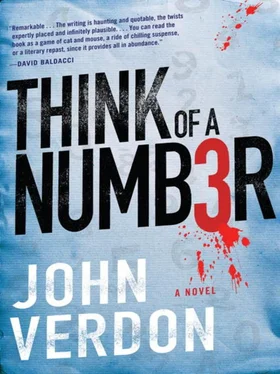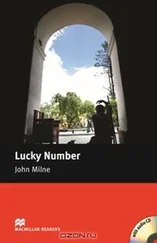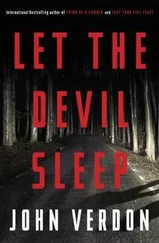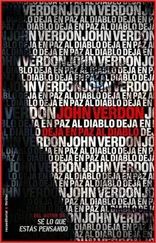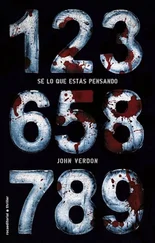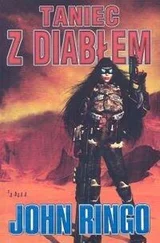Gurney grunted in sympathy. He’d seen more than his share of unsophisticated mayhem.
“That’s mostly crap,” said Gowacki, nodding toward the pile of junk mail that Gurney was gingerly poking through.
He was about to agree when, at the very bottom of the disorganized heap of Pennysavers , flyers, gun magazines, collection-agency notices, and military-surplus catalogs, he came upon a small, empty envelope, torn open roughly at the flap, addressed to Richard Kartch. The handwriting was beautifully precise. The ink was red.
“You find something?” asked Gowacki.
“You might want to put this in an evidence bag,” said Gurney, taking the envelope by its corner and moving it to a clear space on the countertop. “Our killer likes to communicate with his victims.”
“There’s more upstairs.”
Gurney and Gowacki turned to the source of the new voice-a large young man standing in the doorway on the opposite side of the kitchen.
“Underneath a bunch of porno magazines on the table by his bed-there’s three of them envelopes with red writing on them.”
“Guess I ought to go up, take a look,” said Gowacki with the reluctance of a man stocky enough to think twice about a flight of stairs. “Bobby, this here is Detective Gurney from Delaware County, New York.”
“Bob Muffit,” said the young man, extending his hand nervously to Gurney, keeping his eyes averted from the body on the floor.
The upstairs had the same half-done and half-abandoned appearance as the rest of the house. The landing provided access to four doors. Muffit led the way into the one on the right. Even by the shabby standard already established, it was a wreck. On those portions of the carpet not covered by dirty clothes or empty beer cans, Gurney observed what appeared to be dried vomit stains. The air was sour, sweaty. The blinds were closed. The light came from the sole working bulb in a three-bulb fixture in the middle of the ceiling.
Gowacki made his way to the table by the disarranged bed. Next to a pile of porno magazines were three envelopes with red handwriting, and next to them a personal check. Gowacki did not touch anything directly but slid the four items onto a magazine called Hot Buns , which he used as a tray.
“Let’s go downstairs and see what we have here,” he said.
The three men retraced their steps to the kitchen, where Gowacki deposited the envelopes and the check on the breakfast table. With a pen and a tweezers from his shirt pocket, he lifted back the ripped flap of each envelope and extracted the contents. The three envelopes held poems that looked identical, down to their nun-like penmanship, to the corresponding poems received by Mellery.
Gurney’s first glance fell on the lines “What you took you will give / when you get what you gave… You and I have a date / Mr. 658.”
The item that held his attention the longest, however, was the check. It was made out to “X. Arybdis,” and it was signed “R. Kartch.” It was evidently the check returned by Gregory Dermott to Kartch uncashed. It was made out for the same amount as Mellery’s and Rudden’s-$289.87. The name and address “ R. Kartch, 349 Quarry Road, Sotherton, Mass. 01055” appeared in the upper left corner of the check.
R. Kartch . There was something about that name that bothered Gurney.
Perhaps it was just that same peculiar experience he always had when he looked at the printed name of a deceased person. It was as though the name itself had lost the breath of life, had become smaller, cut loose from that which had given it stature. It was strange, he reflected, how you can believe you have come to terms with death, even believe that its presence no longer has much effect on you, that it is just part of your profession. Then it comes at you in such a weird way-in the unsettling, shrunken quality of a dead man’s name. No matter how hard one tries to ignore it, death finds a way to be noticed. It seeps into your feelings like water through a basement wall.
Perhaps that’s why the name R. Kartch seemed odd to him. Or was there another reason?
A shot in the dark
Mark Mellery. Albert Rudden. Richard Kartch. Three men. Targeted, mentally tortured, shot, and so forcibly and repeatedly stabbed that their heads were nearly hacked off. What had they done, separately or in concert, to engender such a macabre revenge?
Or was it revenge at all? Might the suggestion of revenge conveyed by the notes be-as Rodriguez had once proposed-a smoke screen to hide a more practical motive?
Anything was still possible.
It was nearly dawn when Gurney began his return drive to Walnut Crossing, and the air was raw with the scent of snow. He’d entered that strained state of consciousness in which a deep weariness struggles with an agitated wakefulness. Thoughts and pictures cascade through the brain without progress or logic.
One such image was the dead man’s check, the name R. Kartch, something lurking beneath an inaccessible trapdoor of memory, something not quite right. Like a faint star, it eluded a direct search and might appear in his peripheral vision once he stopped looking for it.
He made an effort to focus on other aspects of the case, but his mind refused to proceed in an orderly way. Instead, he saw the half-dried pool of blood across Kartch’s kitchen floor, the far edge spreading into the shadow of the rickety table. He stared hard at the highway ahead, trying to exorcise the image but succeeding only in replacing it with the bloodstain of similar size on Mark Mellery’s stone patio-which in turn gave way to an image of Mellery in an Adirondack chair, leaning forward, asking for protection, deliverance.
Leaning forward, asking…
Gurney felt the pressure of tears welling.
He pulled in to a rest stop. There was only one other car in the little parking area, and it looked more abandoned than parked. His face felt hot, his hands cold. Not being able to think straight frightened him, made him feel helpless.
Exhaustion was a lens through which he had a tendency to see his life as a failure-a failure made more painful by the professional accolades heaped upon him. Knowing that this was a trick his tired mind played on him made it no less convincing. After all, he had his litany of proofs. As a detective, he’d failed Mark Mellery. As a husband, he’d failed Karen, and now he was failing Madeleine. As a father, he’d failed Danny, and now he was failing Kyle.
His brain had its limits, and after enduring another quarter hour of this laceration, it shut down. He fell into a brief, restorative sleep.
He wasn’t sure how long it lasted, almost certainly less than an hour, but when he woke up, the emotional upheaval had passed and in its place was an uncluttered clarity. He also had a terribly stiff neck, but it seemed a small price to pay.
Perhaps because there was now room for it, a new vision of the Wycherly post-office box mystery began to form in his mind. The two original hypotheses had never seemed entirely satisfactory: namely, that the victims were directed by mistake to send their checks to the wrong box number (unlikely, given the killer’s attention to detail) or that it was the right box but something had gone awry, allowing Dermott to receive and innocently return the checks before the killer could remove them through whatever method he’d devised.
But now Gurney saw a third explanation. Suppose it was the right box and nothing had gone awry. Suppose the purpose of asking for the checks had been something other than to cash them. Suppose the killer had managed to gain access to the box, open the envelopes, look at the checks or make copies of them, and then reseal them in their envelopes and replace them in the box before Dermott got to them.
Читать дальше
